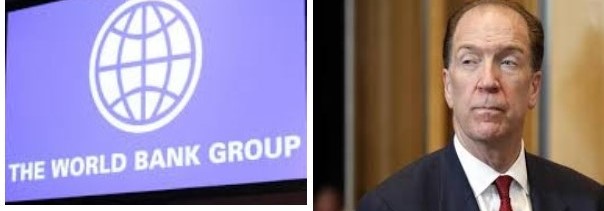-52,000 additional users
WASHINGTON- The World Bank Board of Executive Directors has approved an additional financing of $24.74 million International Development Association (IDA)*credit and $5.26 million IDA grant to increase access to piped water supply services in Monrovia and surrounding areas, says a statement from the Bank.
The press statement issued on Wednesday, June 19, 2019 says the project will improve the operational efficiency of Liberia Water and Sewer Corporation (LWSC).
This additional financing of Liberia Urban Water Supply Project (UWSP), approved on June 14, will be used to scale-up the rehabilitation and extension of Monrovia’s piped water distribution system, as well as to reinforce LWSC’s operational efficiency.
The parent project was conceived as a “first step” to carry out urgent rehabilitation works to alleviate the most binding constraints for the Monrovia water supply distribution network and thus lays the basis for additional investments to further expand access to safe piped water.
“The Liberia Urban Water Supply Project additional financing will help address the critical need for the provision of adequate and safe water supply. It is aligned with Liberia’s ‘Pro-Poor Agenda for Prosperity and Development’, calling for an increase in households, institutions and communities that have access to water, sanitation and hygiene facilities,” said Larisa Leshchenko, World Bank Country Manager for Liberia.
This new funding will complement the original project by restructuring the current transmission and distribution system to improve the conveyance of water by the main transmission line towards central Monrovia’s main reservoirs and increase the storage capacity in Paynesville areas. It will also increase access and enhance the quality and quantity of the water supply service to existing customers.
This is expected to lead to at least 10,000 new household connections and 50 standpipes, thus serving an estimated additional 52,000 Monrovians. This number of beneficiaries almost doubles those under the original project, while improving the supply service to the existing 7,000 customers through better regulation of the water demand and supply.
The LWSC will benefit from complementary capacity building interventions under the funding. A focus will be on improving cost-recovery by supporting the operation of district metered areas (DMAs), Non-Revenue Water (NRW) unit staff training and equipment, customer orientation, support to the project implementation unit, as well as reduction of illegal consumption by either legalizing (additional meters) or removing connections.
Additional activities will build on institutional development supported by the parent project and target operational efficiency, including operationalizing the equipment acquired and infrastructure set-up for NRW and reinforcing the current achievements.
* The World Bank’s International Development Association (IDA)<http://www.worldbank.org/ida>, established in 1960, helps the world’s poorest countries by providing grants and low to zero-interest loans for projects and programs that boost economic growth, reduce poverty, and improve poor people’s lives. IDA is one of the largest sources of assistance for the world’s 75 poorest countries, 39 of which are in Africa.
Resources from IDA bring positive change to the 1.5 billion people who live in IDA countries. Since 1960, IDA has supported development work in 113 countries. Annual commitments have averaged about $18 billion over the last three years, with about 54 percent going to Africa.

